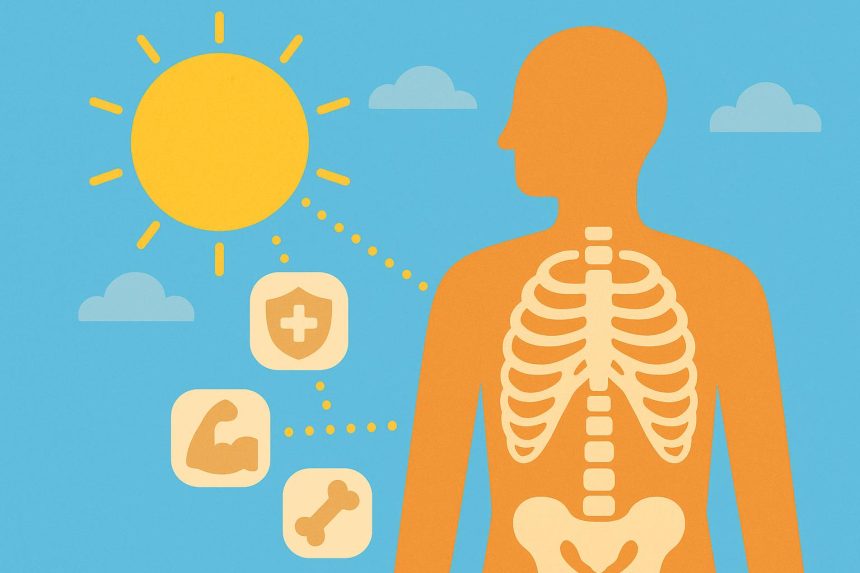Your grandmother always insisted that sunshine was the best medicine, and modern science proves she was onto something big. Most people spend their days indoors under artificial lights, missing out on the natural vitamin production that happens when skin meets sunlight. This deficiency affects everything from energy levels to immune function in ways that might surprise you.
The human body treats vitamin D like a master key that unlocks numerous biological processes. Unlike other vitamins that simply support specific functions, this nutrient acts more like a hormone that influences cells throughout the body. When levels drop too low, the effects ripple through multiple systems simultaneously.
Understanding the benefits of vitamin D helps explain why this nutrient deserves special attention in daily health routines. From strengthening bones to supporting mood regulation, this vitamin plays roles that extend far beyond what most people realize.
1. Bone Strength Beyond Calcium
Vitamin D acts as calcium’s best partner in building strong bones. Without adequate levels, the body struggles to absorb calcium from food, regardless of how much dairy or supplements someone consumes. This partnership becomes especially important as people age and bone density naturally begins to decline.
2. Immune System Support
This vitamin helps regulate immune responses, supporting the body’s ability to fight off infections while preventing overactive immune reactions. Research suggests adequate levels may reduce the risk of respiratory infections and autoimmune conditions. The immune cells actually have vitamin D receptors, showing how directly this nutrient influences immune function.
3. Mood and Mental Health
Vitamin D receptors exist throughout the brain, particularly in areas that regulate mood and behavior. Low levels have been linked to seasonal depression and general mood disturbances. Essential functions include:
- Serotonin production: Supports the creation of mood-regulating neurotransmitters
- Sleep cycle regulation: Helps maintain healthy circadian rhythms
- Stress response: May help the body manage stress more effectively
- Cognitive function: Supports memory and concentration abilities
Many people notice improved mood and energy when their vitamin D levels normalize.
4. Heart Health Connection
Adequate vitamin D levels support cardiovascular health through multiple pathways. The vitamin helps regulate blood pressure and may reduce inflammation in blood vessels. Some studies suggest that people with optimal levels have lower risks of heart disease.
5. Muscle Function and Strength
Vitamin D receptors in muscle tissue help maintain strength and coordination. Deficiency can lead to muscle weakness and increased fall risk, especially in older adults. Benefits include:
- Improved muscle strength: Better protein synthesis and muscle fiber function
- Enhanced balance: Reduced risk of falls and mobility issues
- Faster recovery: Better muscle repair after exercise or injury
- Reduced pain: May help with chronic muscle and joint discomfort
Athletes often notice improved performance when their vitamin D levels are optimized.
Bottom Line
Vitamin D functions like a master regulator that influences bone health, immune function, mood, and much more. Getting adequate amounts through sunlight, food sources, or supplements can make a noticeable difference in how you feel and function. Consider having your levels tested to see if you’re getting enough of this crucial nutrient.
Lynn Martelli is an editor at Readability. She received her MFA in Creative Writing from Antioch University and has worked as an editor for over 10 years. Lynn has edited a wide variety of books, including fiction, non-fiction, memoirs, and more. In her free time, Lynn enjoys reading, writing, and spending time with her family and friends.















